“But we, believing that the normal child has powers of mind which fit him to deal with all knowledge proper to him, give him a full and generous curriculum; taking care only that all knowledge offered him is vital, that is, that facts are not presented without their informing ideas.”
I recently heard a mother say that her child didn’t need to learn history because, if necessary, she could simply look up any information online. This depressing line of thinking ignores the dignity of the child and the need for the child’s soul to be nourished, instructed, and discipled. We don’t want our children to merely learn facts: dates, names, timelines, battles, inventions of the time period we are studying. The ultimate goal is for our children to grow in character and wisdom. They do this by being fed on fully formed ideas - not stripped of their meaning but nestled within its context
This is why learning the timeline song is not nearly as nourishing to a child as reading a biography about a great man, such as Julius Caesar and wrestling with the IDEA of whether or not he was a GOOD man. What makes a man great? What makes a man good? Can we find the virtues and vices lived out in the story of mankind? Can we recognize them when we meet with them “in the wild”?
Since education is about the formation of character rather than the impartation of mere facts, we want to feed our children with ideas within their life-giving context. This allows ideas to work on the child who will be able to wrestle with them and grow in understanding.
What is a fact?
A fact is a piece of information conveyed without its context. We now have “fact checkers” and websites dedicated to “telling the truth,”but we find that without context, we aren’t able to get to the truth itself. Ideas themselves are dangerous things because it is from ideas that our actions derive.
A fact outside its context creates arrogance and apathy in students. In Hard Times by Dickens, Professor Thomas Gradgrind sees facts as the primary means of education. He calls on “student number 20,” Sissy Jupe, to share a little of her background. Shyly, she reveals that her father is a horse trainer at a local circus. Professor Gradgrind interrupts her to ask her to tell the class what a horse is. As she begins to answer she is stopped by the Professor for not sharing any “facts” about a horse. He then calls on Bitzer, a boy who excels in Gradgrind’s method of teaching to provide the correct answer:
“Quadruped. Graminivorous. Forty teeth, namely, twenty-four grinders, four eye teeth, and twelve incisive. Sheds coat in the spring; in marshy countries, sheds hoofs too. Hoofs hard, but requiring to be shod with iron. Age known by marks in mouth.” (Poetic Knowledge, p. 7)
After such an explanation, no one except Sissy knew what a horse was. So it is with facts outside their context. They are dry, boring, and don’t help us get at true understanding.
What is an idea?
An idea is that which is seen, felt, impressed upon the mind to bring about understanding. The spiritual part of the lesson that goes beyond what we can see is the “big idea”. An idea is like a seed that is planted in the soil of the mind. Within the mind, the idea can grow and blossom and bear fruit. Ideas themselves, much like trees, take time to develop and mature.
When we think back to Blitzer and his dry facts. Do we remember anything about horses other than we wanted him to stop talking in such a dull way. If we want to get a real idea about horses then we need to hear from someone who loves them and understands them. We will then ourselves be moved to love and understand what they are and how they behave. Monty Roberts is a famous horseman who spent his life observing horses and teaching people how to work with them and not against them. He describes how he first discovered his method of horse training he calls “Join-Up.”
“I first learned to listen to horses while observing wild mustangs in Nevada at the age of thirteen. Sent there to round up horses for the Salinas Rodeo Association’s Wild Horse Race, I spent hours silently watching the feral horses interact with each other.
I soon realized horses use a discernible and predictable body language to communicate, to set boundaries, show fear and express annoyance, relaxation or affection. In a moment that would change my life, I understood that utilizing this silent body language would allow training to commence in a much more effective and humane manner, encouraging true partnership between horses and me. ‘Join-Up’ would become the foundation of all my work with horses and later people, too.
“‘A good trainer can get a horse to do almost anything. The great trainer can cause the horse to want to do it.’”
Monty’s love for horses and his devotion to training them with kindness shines through in this passage. Unlike the dry facts above, we now have a better understanding of horses, not from their facts but from the ideas about them in the context of a story. An idea moves us to understanding because we have a picture of something to imitate, strive for, embody, or support. Ideas are the energizing force behind our actions.
Where do ideas come from?
Ideas come from God Himself. Any great thought, sense of clarity, order, peace, joy, all come from and point back to God. We know that God works in all things and that as we learn about the world God made we see how He reveals Himself in everything and points us back to Him.
What’s the goal of education again?
If the goal of education is to cultivate wisdom in our children then ideas must be given in context and not in isolated predigested information bites. What does it matter if a child can recite the Timeline song, if he’s not introduced to the stories of mankind he won’t be shown how to live well, love his neighbor, and serve God in his daily life. We want our children to pursue virtue and to be able to identify vices in the lives of others which will allow them to do the same in the wild of real life.
“We are absolutely safe, and the tenderest child is fortified against the battering ram of educational forces.” (Vol. 2, p. 32) The great work of education is to inspire children to vitalizing ideas. The role of the mother-teacher is to be deliberate in teaching habits of good living which are the outcome of those good ideas.
Who feeds children with these lovely ideas?
It’s the parents who are in charge of what ideas are fed to children. God Himself placed children in families. It is through the family that wisdom is not only learned but cultivated and practiced by all members of the household. God’s design of the family is foundational to education.
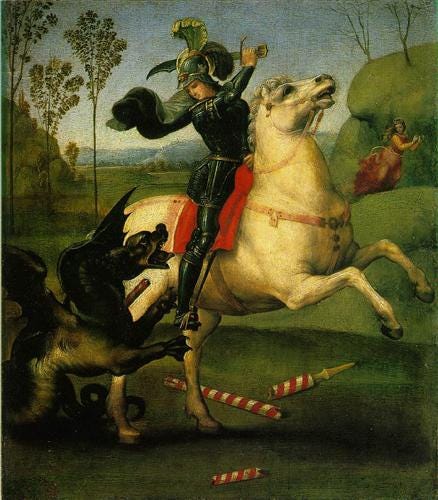
How do I help my child receive these nourishing ideas?
Read the Bible Together
The best place to start is through a daily time in God’s word. All great ideas come from God and even the evil ideas are dealt with in scriptures, so starting with a diet of God’s word gives us the foundation we need to grow in wisdom.
Resources:
Seeking God’s Face is a simple devotion that walks through the liturgical calendar and has the scripture passages printed in the book.
A Liturgy for Daily Worship trilogy is another fabulous resource for scriptures, creeds, and catechism for the reformed family walking through the liturgical year.
Read Great Stories Together
Classic literature and The Great Books have stood the test of time because they deal with those ideas that transcend our time and place. Why deal with the temporal trifles of our modern day when we are really a part of a greater story with eternal consequences? Stories that give insight into the human condition and reflect the ideas of its time give us the nourishing ideas we need to live by.
Resources:
You may enjoy the Dad’s Read Aloud List for Boys
AmblesideOnline is a great place to start for great classic family reads
Seek Beauty in Art and Music
The utilitarian method of feeding children with facts is not concerned with cultivating wisdom nor is it bothered with the needs of the soul. Just as important as getting beautiful words, our children need to see beautiful works of art and hear beautiful pieces of music. These cultivate their athletic sense, and inform their ability to express and discern spiritual things. We want to give our children a full life and that includes beauty.
Things to try:
Make time for picture and composer study each week (we alternate between the two)
Go to a symphony or live music performance
Hang prints of beautiful art throughout your home
Keep art books open on book stands to display beautiful art
Play beautiful music throughout your day
Be in Nature Habitually
God speaks to us through His word AND through His creation. We need to be outside in nature with habitual regularity in order that we may observe and be nourished by all that He has made for us to enjoy. Once we start getting outside and asking questions about all that we see we find that there is still so much for us to learn. God’s world is restorative and informative. It is a place where our bodies are refreshed and our minds are brought away from temporal cares and we can wonder about the God who made all that we see.
Things to try:
Plan a daily walk at the same time each day
Plan regular outings to visit beautiful parks and nature preserves in your area
Practice nature study and keep a nature journal (need help? Try this resource I developed just for you.)
Our children need to be nourished by good, true, and beautiful ideas so that they can grow in wisdom. Parents are the means through which our children are fed both physically and spiritually. It’s easy to look at a list and start working through the items in hopes that if we do X then Y will result. But we are talking about nourishing souls and not building robots. Our children will take what they need and grow as they are nourished. Dry facts won’t bring the life to our children that the embodied ideas will because they won’t become a part of the child. And that’s what we are after-- helping them live more deeply, see more clearly, think more freely.
Lynn Bruce sums it up this way: “What modern education reformers miss is that if we aim for the full and generous curriculum, as Charlotte urged, the utilitarian concerns will largely take care of themselves. A utilitarian education cannot match a liberal education for preparing the mind for the demands of life and citizenship. (In Volume 6, in the various sections on "The Knowledge of Man," Charlotte discusses at length how a literary education leads to statesmanship.) A child who has personally befriended a broad spectrum of vital knowledge will come to life with a magnetic web of wisdom and experience -- both vicarious and direct -- at his ready disposal, and will continue to greet knowledge with personal enthusiasm through life. Thus, he will bring a mind eclectic, quick and agile to any future pursuit he desires.
"The mind is a spiritual octopus, reaching out limbs in every direction to draw in enormous rations of that which under the actions of the mind itself becomes knowledge. Nothing can stale its infinite variety; the heavens and the earth, the past, the present, and future, things great and things minute, nations and men, the universe, all are within the scope of the human intelligence." (Mason, Vol. 6, p. 330)
Reflection Questions:
What are some simple ways we can add more beauty to our homeschool week?
What are some examples of subjects or topics where I’ve prioritized teaching facts over cultivating wisdom? What’s one thing I can do to change this?
What is the difference between a child who has memorized information and one who has engaged deeply with ideas?
What practical steps can I take to cultivate a love for wisdom, beauty, and truth in my home on a daily basis?
How does my approach to core subjects support the importance of character formation? How does it hinder it? Do I rush my children through their work or do I help them enjoy the work?
20 Principles of a Liberating Education:
#2 The Good and Evil Nature of Children
#3 Parents are in Charge and Children Must Obey
#4 Limits to Our Authority as Parents and Educators
#5 Education is an Atmosphere, a Discipline, a Life| a primer
#9 Feeding the Hungry Mind
#10 From Bucket Heads to Bright Minds| The True Role of Teacher & Learner
#11 Drop the Timeline Song| Education is Cultivating Wisdom Through Nourishing Ideas (You are here)
Bibliography for further reading:
The Spiritual Octopus by Lynn Bruce
In Vital Harmony by Karen Glass
Start Here, a Journey through Mason’s 20 Principles by Brandy Vencel
Philosophy of Education by Charlotte Mason





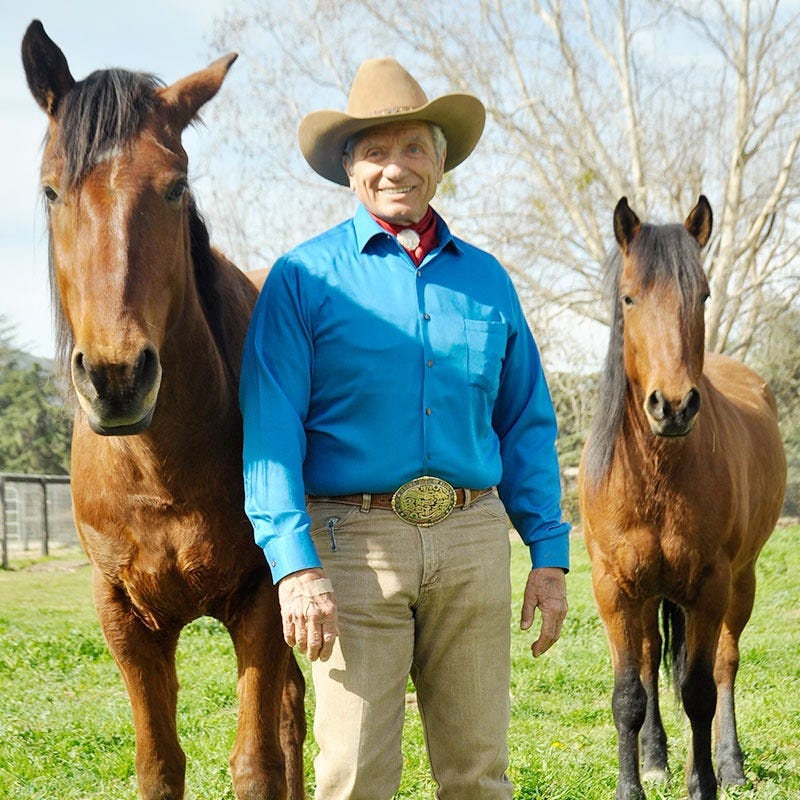

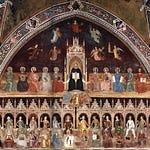
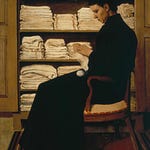
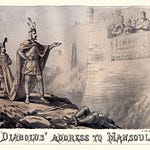
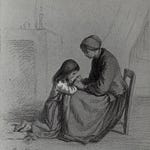
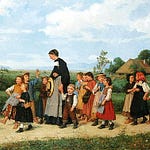
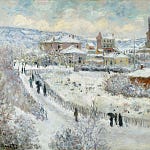
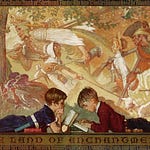
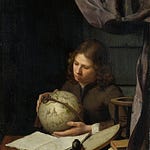
Share this post